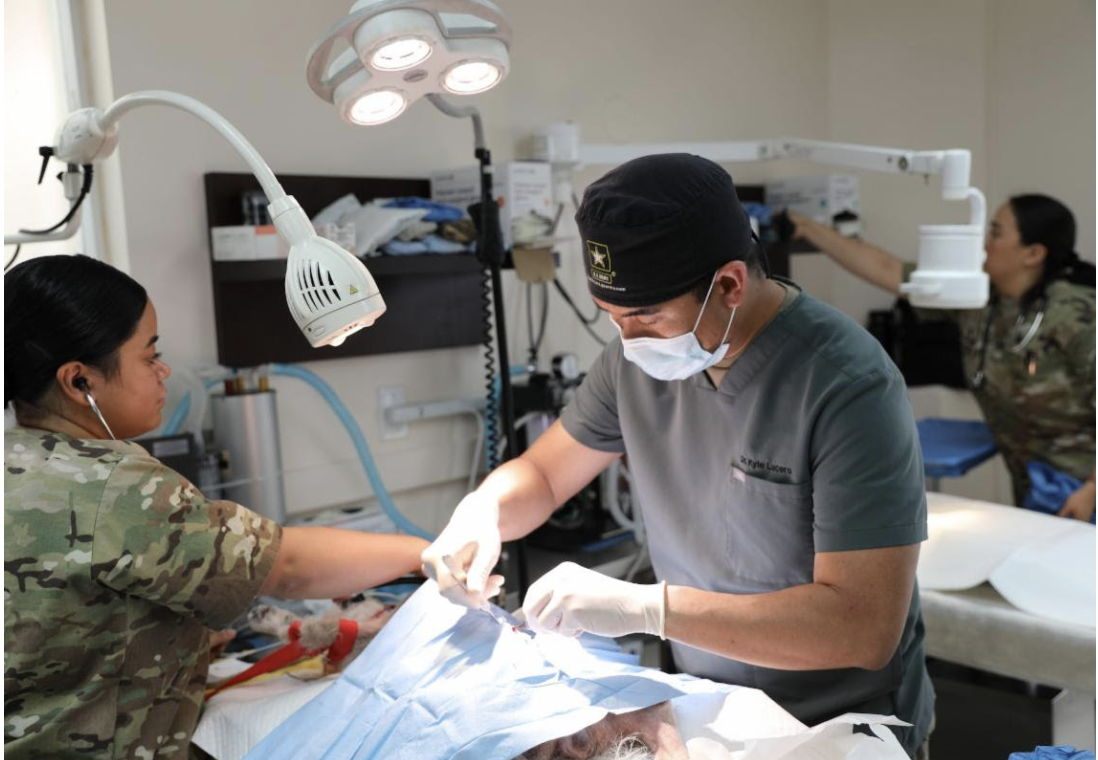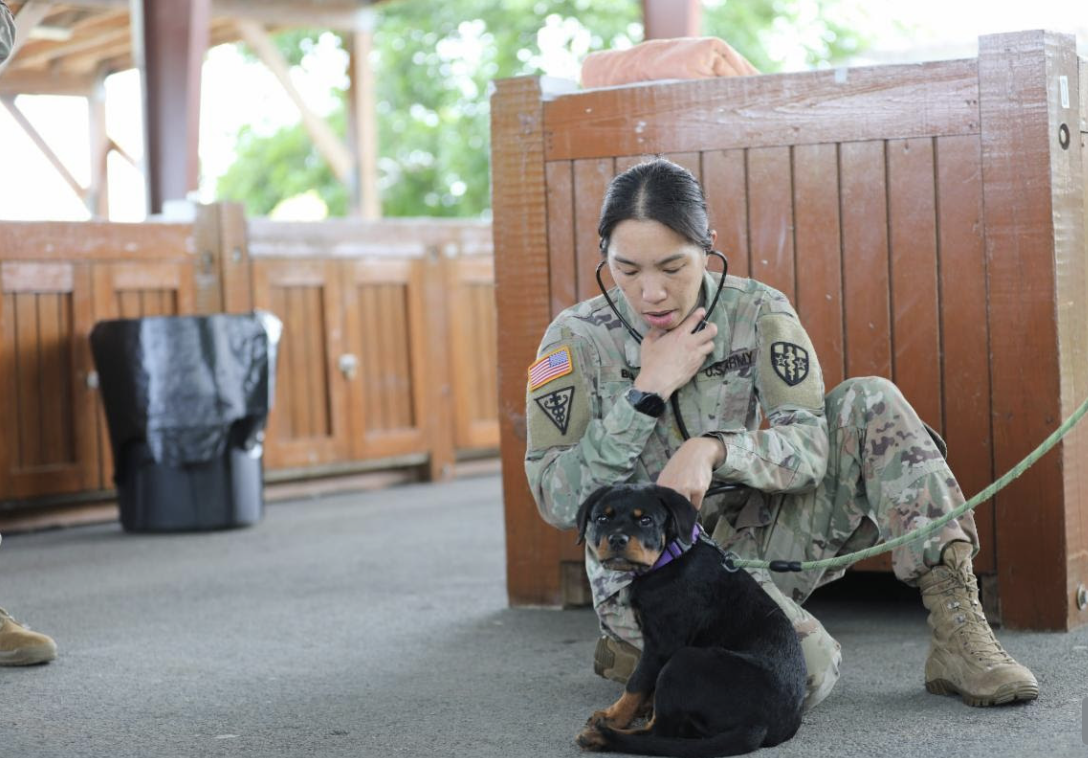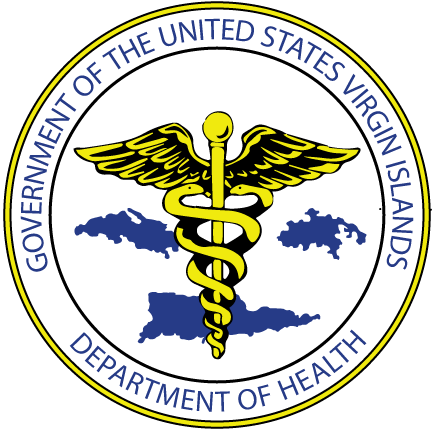St. Thomas, U.S. VIRGIN ISLANDS – More than 1,100 no-cost veterinary services—valued at more than $127,000—were delivered to residents on St. Thomas through the U.S. Department of Defense’s (DoD) Innovative Readiness Training (IRT) Program, according to the final report delivered to the VI Department of Health this week.
A 20-man IRT team of military veterinarians, technicians, preventative medicine and food safety specialists, deployed to St. Thomas and conducted a two-week training mission, June 16-27, to provide comprehensive pet care in partnership with the VI Department of Health and the Humane Society of St. Thomas.
“We are deeply grateful to the service members of the IRT Program for their invaluable contribution to public health and animal welfare during the two-week mission on St. Thomas,” said VI Health Commissioner Justa Encarnacion. “This has been a true demonstration of service and partnership. Access to veterinary care is limited for many residents, and this mission not only filled that gap—it did so with compassion, professionalism, and a commitment to improving lives.”
“Our gratitude extends to the Humane Society of St. Thomas which allowed the IRT to utilize their facilities for this mission. We could not have done it without them,” Commissioner Encarnacion said.
The military veterinary team performed 443 wellness exams, administered 534 vaccinations, and completed 181 spay and neuter procedures at the Humane Society of St. Thomas — representing a total cost savings to the community of $127,480.
These services addressed critical gaps in veterinary care while offering hands-on mission training to the 20 military personnel representing the U.S. Army Reserve and U.S. Marine Corps Reserve.


In addition to enhancing public health outcomes, the IRT mission helped military service members build real-world skills in a joint-service environment, including leadership, coordination, and veterinary surgical care. The total estimated value of services provided in this year’s veterinary mission—including labor, materials, and equipment— is approximately $1.7 million.
The 2025 mission included service members from the 7354th Veterinary Detachment, 49th Multifunctional Medical Battalion, 4th Civil Affairs Group, and the 402nd Civil Affairs Battalion. Their efforts align with the IRT’s vision: to deliver high-impact veterinary care that strengthens animal welfare, supports public health, and fosters enduring civil-military bonds.
“Public health extends to the animals in our care,” said Dr. Tai Hunte-Ceasar, Chief Medical Officer for the VI Department of Health who coordinated the mission alongside the IRT team. “This mission helped protect both pets and people, especially in communities where veterinary access is limited. The services provided were also impactful in addressing the overpopulation of cats and dogs in the community.”
“We look forward to future missions that serve even more residents—including those on St. Croix and St. John,” Dr. Hunte-Ceasar said.
In addition to providing veterinary care, the IRT team actively engaged with the community—making a presentation to the Boys and Girls Club and meeting with local businesses and government agencies to discuss ways to better support the Territory.
The overarching vision is “to be a trusted force for health and services in the USVI, delivering high-impact veterinary care that strengthens animal welfare, supports public health, and builds enduring bonds between military personnel and the local community,” said Maj. Christine Bui, veterinarian and Officer-in-Charge, during a Distinguished Visitors Day luncheon held on June 26 to brief military and community partners on the mission’s successes.
This marks the third IRT mission to the U.S. Virgin Islands in as many years. In August 2023, a small medical team supported the department’s pediatric clinic with back-to-school physicals and immunizations. In June 2024, the IRT deployed approximately 300 military medical professionals to provide basic medical care to residents across the territory — delivering an estimated $2.25 million in healthcare services to the community.
# # #
